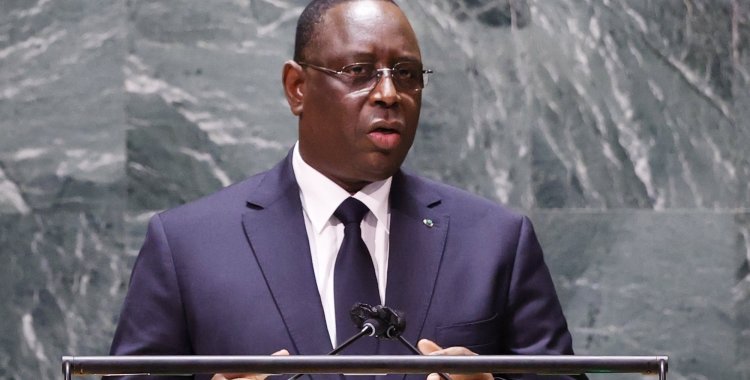"I thank Presidents Tshisekedi and Kagame for our telephone conversations yesterday and today in the search for a peaceful solution to the dispute between DRCongo and Rwanda", said the acting president of the AU through the social network Twitter.
Macky Sall - who encouraged the head of state, João Lourenço, to "continue his mediation efforts in this regard", in his capacity as president of the International Conference of the Great Lakes Region (CIRGL) - did not specify whether Kagame and Tshisekedi spoke already directly with each other.
Tshisekedi travels to Luanda this Tuesday for talks with his Angolan counterpart, related to the escalation of tensions with Rwanda.
Tension between Rwanda and DRCongo has grown exponentially in recent months, following the resumption in March of fighting between the Congolese army and the March 23 rebel movement (M23), which, according to Kinshasa, is supported by the neighboring country, a accusation denied by Kigali.
Both countries requested the intervention of the Enhanced Joint Verification Mechanism (EJVM), established by the CIRGL to investigate security incidents in its 12 member states.
Rwanda demanded last Saturday that the DRCongo release two soldiers from its army kidnapped while patrolling the border with that country, on the same day that the Congolese government suspended Rwandair flights to its territory, in protest against the alleged support of Kigali. to the rebels.
This Monday, the spokesman of the Congolese Government, Patrick Muyaya, said that the country did not exclude "the rupture of diplomatic relations" with Rwanda.
Last week, the Congolese armed forces recaptured several towns taken by the M23 after heavy fighting in the northeast of the country.
The M23 was created on 4 April 2012, when Congolese soldiers revolted at the loss of power of their leader, Bosco Ntaganda, accused by the International Criminal Court (ICC) of war crimes for alleged violations of the peace agreement of 23 March 2009, the date that gave the movement its name.
The group demanded a renegotiation of the agreement signed by the Congolese guerrilla National Congress for the Defense of the People (CNDP), namely the conditions relating to their integration into the Rwandan army.
The CNDP, made up mainly of Tutsis (an ethnic group that suffered the Rwandan genocide at the hands of the Hutus in 1994), was formed in 2006 to - among other things - fight the Hutus of the Democratic Forces for the Liberation of Rwanda (FDLR), a group that took refuge in the Congolese jungles after the genocide.
In 2012, the M23 occupied Goma, capital of the Congolese northeast province of North Kivu, for two weeks, but international pressure forced the rebel movement to withdraw and start peace talks with the DR Congo government in Kinshasa.
For more than two decades, eastern DRCongo has seen conflicts fueled by rebel militias and attacks by the Congolese army, despite the presence of the UN peacekeeping mission (MONUSCO), which has more than 14,000 troops in the country.







